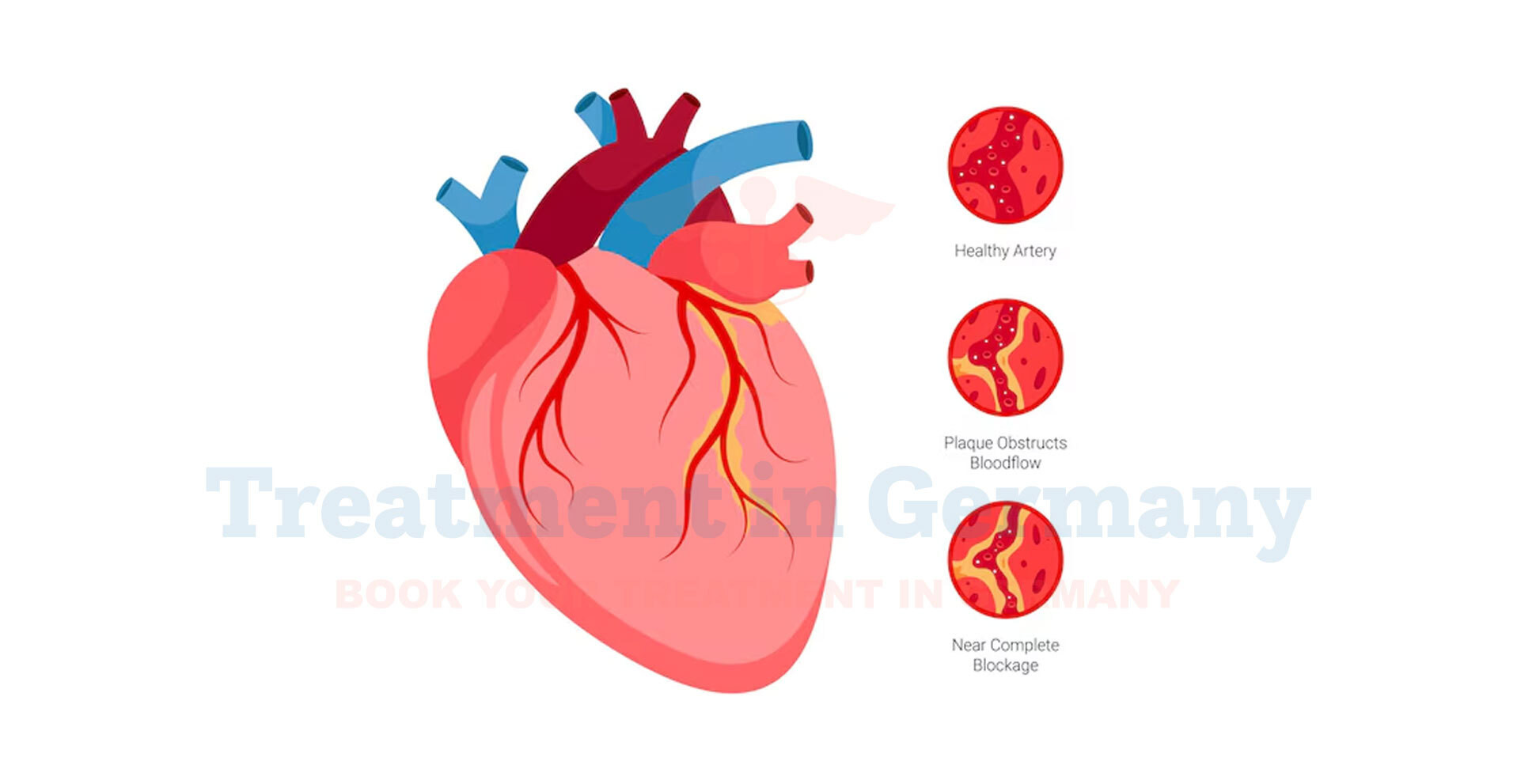Cardiac diseases, worldwide health issues, include multiple pathologies affecting the functions of the heart. Germany is famous for its hi-tech healthcare technologies and related treatments for heart diseases. This nation specializes in the latest treatments for conditions such as coronary artery disease, irregular heartbeats, congenital heart defects, and many others, offering the best of cardiology backed by technology and individual attention.
Cardiac disease entails a whole lot of ailments that may affect the circulatory system, particularly the heart. Some of the diseases are coronary artery disease, heart attack, arrhythmia, heart valve disease, cardiomyopathy, and congenital heart disease, among others. Hearts can pump blood, and any inability to do that can cause dangerous illnesses such as heart failure, stroke, and cardiac arrest.
Types of Heart Disease
The following are the forms of cardiac disease:
Coronary Artery Disease (CAD)
This is the most common type of heart disease typified by the blockage of arteries caused by fat deposits. CAD can therefore cause congestive heart attacks as well as reduce blood circulation.
Arrhythmias refer to the abnormal electrical stimuli that control the rhythm of the heart and lead to irregular rhythm.
Heart Valve Diseases
Problems such as stenosis or regurgitation affect the normal blood circulation in the heart. These may call for a surgical treatment plan, valve repair, or replacement surgery specifically.
Cardiomyopathy
The cardiac muscle may not be able to pump blood effectively if it has inflammatory and chronic diseases.
Congenital Heart Disease
Those congenital diseases of the heart include septal defects or the improper functioning of heart valves.
Causes and Risk Factors
Heart diseases are thus occasioned by inherited or genetic disorders, lifestyle and medical conditions. Key contributors include:
Symptoms of Heart Disease
The following are the symptoms of the heart disease:
Common Indicators
Symptoms vary based on the type of heart disease but often include:
Diagnosis of Heart Disease in Germany
Germany employs state of the art diagnostic tools to detect heart conditions early:
Physical Exam and Tests
Treatment Approaches in Germany
The following are the treatment approaches for the heart disease:
Medication
Germany emphasizes managing heart disease through targeted medications to:
Surgical Interventions
Advanced surgical options include:
Cardiac Rehabilitation
To support a client’s recovery, this program consists of closely supervised physical activity, dietary guidance, and other changes.
Innovative Treatments and Technologies
Germany leads in innovation with treatments like:
Prevention and Lifestyle Changes
Preventing heart disease requires proactive steps:
FAQs
Why does Germany attract so many patients with heart disease?
Germany provides solutions such as technologically proven innovations, exceptional medical services, as well as diagnostics and operations.
How are genetic concerns handled in heart care?
Hereditary disorders can be properly addressed when enhanced by genetic testing and individualized therapy.
To what extent is life responsible for heart health?
A proper lifestyle plays a role in the reduction of the possibility of heart disease or the recovery process.
Is the trend for performing minimally invasive surgeries popular in Germany?
Yes, indeed, it is true that Germany has developed less invasive methods required to treat arrhythmias and valve diseases, among other illnesses.
What should I do if I have symptoms like lightheadedness or chest pain?
One should seek medical help as soon as possible since such are indicative of a severe heart disease.
👉 Contact us for further information and receive a complimentary consultation.


.webp)
 (1).webp)

.webp)
 (1).webp)


.webp)
 (1).webp)

.webp)
 (1).webp)
